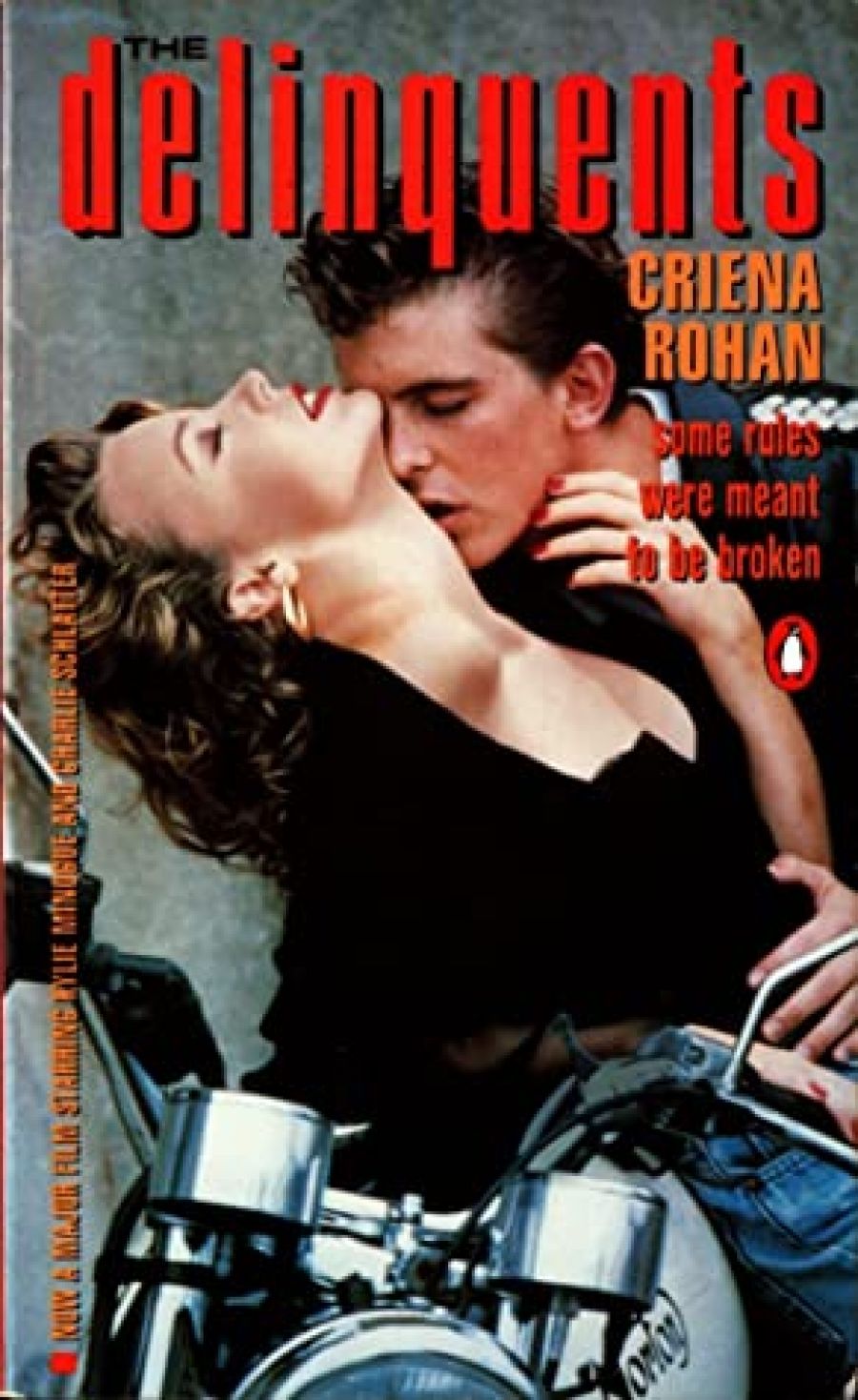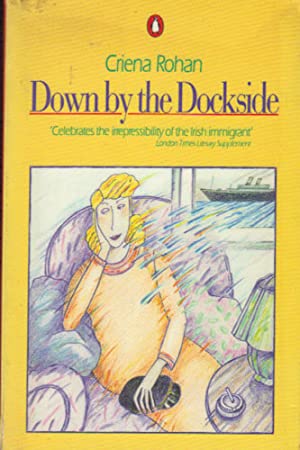
- Free Article: No
- Contents Category: Fiction
- Review Article: Yes
- Online Only: No
- Custom Highlight Text:
Given the appetite of the literary industry, it’s hard to believe that a good thing can go unnoticed for long. But it happens. Occasionally the manuscript of an unheard-of author, or the out-of-print book of a forgotten one, finds its way into the hands of an influential member of the literary establishment – and from there to the rest of us. It’s a big event. Not only does it lend credibility to the old Shakespeare’s sister story (or one of its variants), but it indicates that, even in this over-determined world, it is still possible to be surprised.
- Book 1 Title: The Delinquents
- Book 1 Biblio: Penguin, 192 pp, $6.95 pb
- Book 2 Title: Down by the Dockside
- Book 2 Biblio: Penguin, 256 pp, $7.95 pb
- Book 2 Cover Small (400 x 600):

- Book 2 Cover (800 x 1200):

- Book 2 Cover Path (no longer required): images/ABR_Digitising_2021/Jul_2021/md30923076359.jpg
One of the conventions of ‘discovery publication’ is the anecdotal preface which tells how the book first came to light. In 1980 there was the American publication of John Kennedy Toole’s A Confederacy of Dunces with a foreword by Walker Percy. In 1976 Percy was approached by a woman who insisted he read the manuscript of her deceased son’s only novel, which she said was a work of genius. Percy considered the proposal ‘preposterous’. But being the last of the southern gentlemen (and believing secretly that a paragraph would suffice to dismiss the work), he agreed. The profits from that novel will be underwriting every other publication from Louisiana State University Press for many more years to come.
A similar story begins in Victoria in the early 1980s. Barrett Reid, then in charge of the development of public libraries, was asked by an enterprising publisher what out-of-print Australian books were still in demand by patrons of the library system.
This interesting question led, more or less directly, to the republication in 1984 and 1986 of two novels by an unknown, pseudonymously named Criena Rohan. This immensely talented singer, dancer and novelist, daughter of the Melbourne poet Leo Cash, completed three books before she died of cancer in 1963 at the age of thirty-eight. Two of these, The Delinquents and Down by the Dockside, were published in England by Victor Gollancz (who also published Kylie Tennant in the late 1930s and early 1940s) in 1962 and 1963 respectively. Then the author died and that was that. To all intents and purposes, these two charming stories of urban Australia in the years surrounding the war vanished from the book of Australian literature.
Neither of them gets a mention in any of the standard Australian bibliographies. The only person of any influence who seems to have been aware of them is Geoffrey Dutton who, to his credit, names The Delinquents as one of the great Australian love stories. But Reid, in his researches, discovered that Criena Rohan’s novels had a secret life / in the libraries. Ever since they were written there had been a demand for these books from a particular segment of the population – people who were not ‘regular users’. Rohan’s audience, it turns out, came in off the streets. Exactly like her characters. If girls can be larrikins then that’s what Rohan’s heroines are. Tough, sensible, working-class Irish girls whose soft hearts and quick minds get them into and out of trouble with men, money and every kind of authority known to urban man. If the stories are sentimental to their dedication to True Love, they are also as superbly satirical as any of contemporary Australia’s more bitter wit:
A woman’s lot was hard. It needed sustaining with a great deal of hard liquor. It was all very cost and friendly there in the lounge, swapping stories of their sufferings at the hands of the common enemy – men. Women had a lot to put up with, men were bastards and kids! My God, kids were a worry … They sighed into their beer, they shook their heads over their gin – they went home to nag their children and grudgingly sling chops and three vegetables at the clods of husbands who did not realize what treasures they had won.
Criena Rohan is terribly funny. The parade of minor characters – the land- ladies the social workers, the bosuns – reads like a list of roles for the great character actors of early TV. The dialogue is superbly natural, and the evocation of particular atmospheres, whether it’s the bars and boarding houses of post-war Brisbane or the terrible hunger of South Melbourne during the depression, is better than Earthquake in Sen-surround.
Reid attributes the disappearance of these unarguably wonderful novels to the shift in critical tendencies in the last twenty years away from social realism. No doubt he is right. But two other factors surely play some part. These are stylish books. If you don’t love fashion you will miss a lot. You just have to appreciate the way these boys and girls dress the way they decorate their rented rooms, the presents they give and bikes they ride. The particular fashion of the books was out of fashion for a while, but with the renaissance of 1940s and 1950s style, Rohan’s characters are cooler than ever:
Lola, in her spreading skirts and high-heeled scuffs, her breasts half naked, her eyes drowned in mascara and was her hair caught back in a ponytail, a scene-stealer in any bodgie’s book.
And even if the style never went out, the interest in it was undoubtedly too feminine. For many it still will be. Both novels are concerned, in large part, with the problems of getting and holding a man – and a sailor, at that. They are juvenile, naive in some respects – particularly The Delinquents (in my opinion, actually the better read). But the heroines are so cheeky, the stories so sad and sweet, and the writing so capable, that it would only be a poor prejudice that would dismiss these novels on grounds of immaturity. If Chuck Berry can make history with adolescent love there is no reason Criena Rohan shouldn’t.


Comments powered by CComment